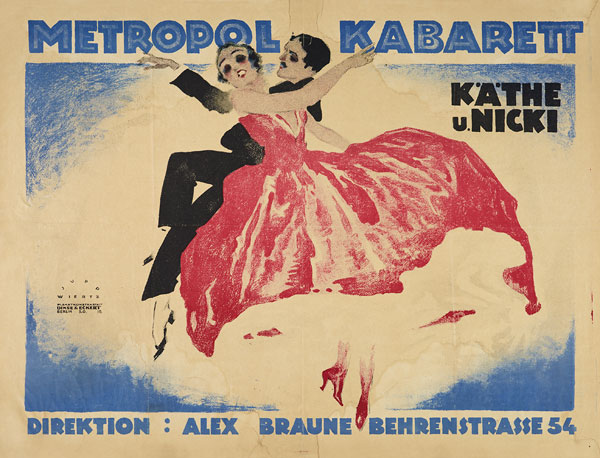
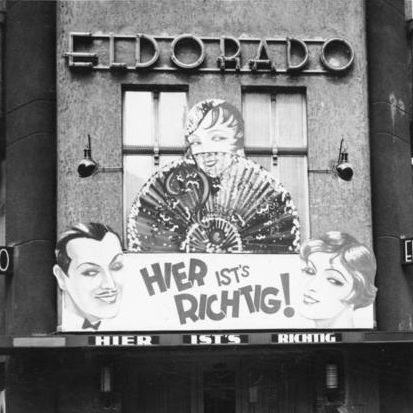
Eldorado
The Eldorado has had a complicated history in and around Schöneberg with several establishments claiming the name righter the years.
In 1919, a bar called Eldorado-Diele opened at Alte Jakobstraße 60, in the Kreuzberg district of the city. It advertised itself as a cosy bar-restaurant for older gay men. It was only to last two years.
However, over in Charlottenburg, businessman Ludwig Konjetschni was looking for a new lease of life for his cabaret and coffee-shop venture in Kantstrasse. On March 22 1922, he opened The Eldorado. Advertised as a “Meeting Place For The International World” he directly targeted the homosexual community by advertising in gay and lesbian publications. Over the next three years the venture was a huge success.
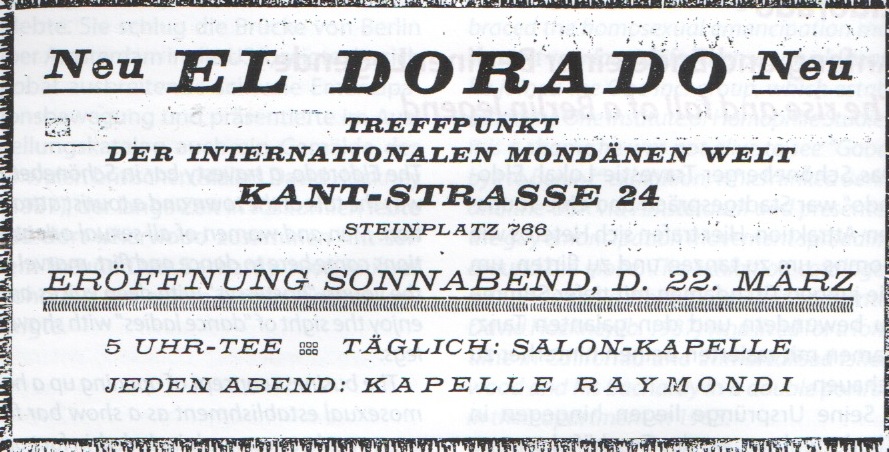
By 1927, Konjetschni was looking to move into the main entertainment district in Schöneberg. He found suitable premises at the former August-Victoria-Säle dance hall at Lutherstrasse 30, directly opposite the famous Scala Variety Theatre.
The new venue was an instant hit with Berlin society and tourists alike and featured in countless guidebooks. It became the place to be seen and its guestbook featured a host of famous names over the next five years.
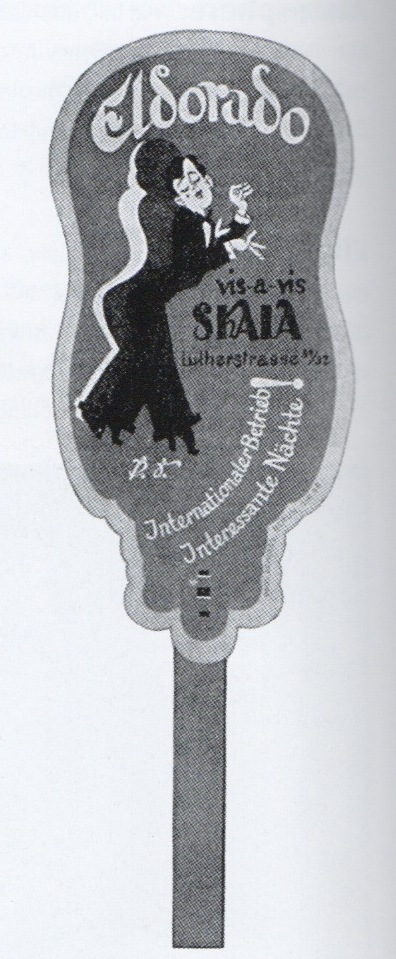
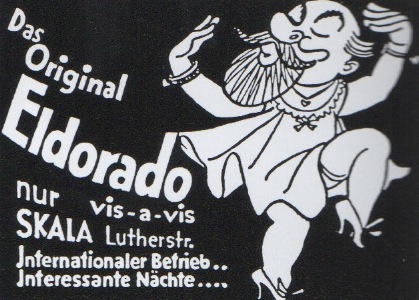
By the end of 1930, the success of The Eldorado sent Ludwig Konjetschni in search of even larger premises and he found the Grand Cafe Luitpold on Motzstrasse. The brand new Eldorado opened early in 1931.
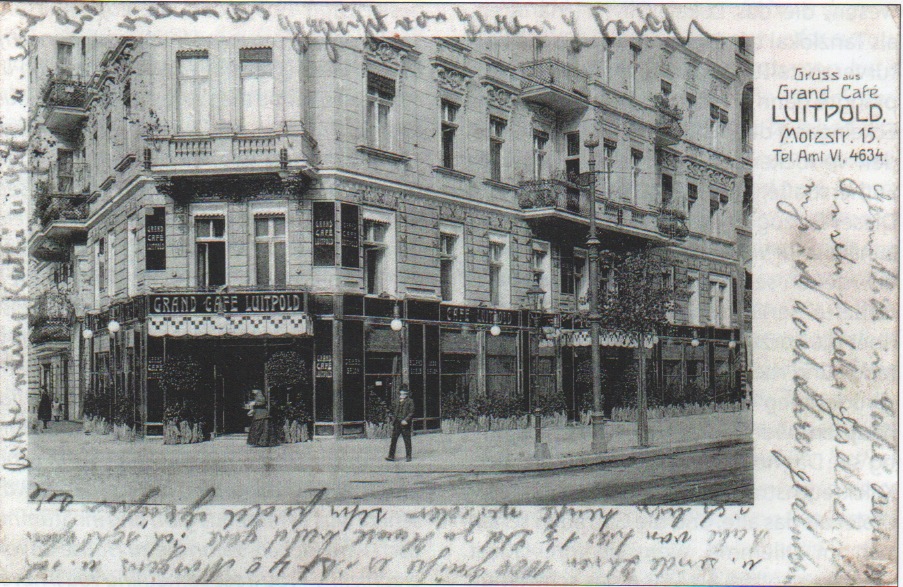
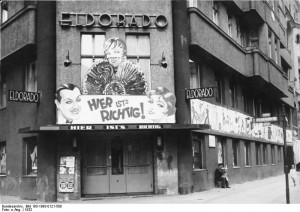
It featured regular performances by the likes of Marlene Dietrich, Claire Waldoff and the Weintraub Syncopators, and was widely known to be a regular venue for transvestites and transexuals. Customers could buy ‘chips’ to exchange for dances with the regular transvestite hostesses.
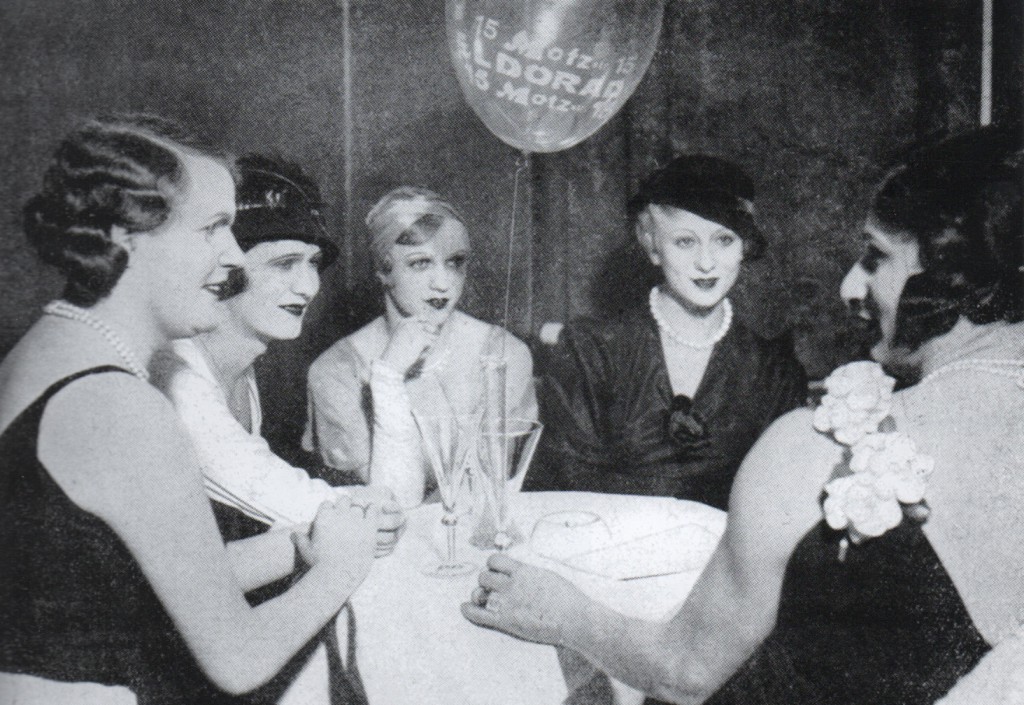
The Eldorado played a central role in ‘ I Am A Camera’ – the 1955 film adaptation of Christopher Isherwood’s ‘Goodbye To Berlin’.
For a while both the Lutherstrasse venue and the new Motzstrasse one operated simultaneously, initially causing some confusion, but eventually leading customers to simply visit both.
The Lutherstrasse venue closed its doors in mid 1931.
However, the golden age of the gay bar and club scene in Berlin was rapidly coming to an end. In July 1932, new Chief of Police Kurt Melcher began implementing the strict catholic policies of the new Von Papen government and announced “an extensive campaign against Berlin’s depraved nightlife”. All “amusements with dancing of a homosexual nature” were now subject to an earlier closing time of 10pm. Many bars and dance halls turned themselves into private clubs in an attempt to sidestep the new laws.
In October 1932, the gay scene was dealt an almost fatal blow when the Chief of Police ordered a ban on same-sex couples dancing in public. It was the end for The Eldorado.
Under enormous pressure and fearing for his family and livelihood, Ludwig Konjetschni closed the Eldorado and handed the premises over to the local Sturmabteilung (SA) – many of whom had worked for him and he placed his future in their hands. The SA turned the Eldorado into their new local headquarters.
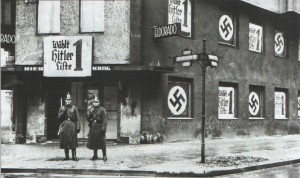
Within a month of the Nazi’s coming to power in January 1933, Hermann Goering ordered the closure of a raft of premises and gay men and transvestites were routinely being arrested and imprisoned.
Ludwig Konjetschi’s trust in the new regime was not rewarded. In July 1933, he fled Berlin with his wife and two young children. It made headline news. His remains family currently live in Sydney, Australia.
The building is now occupied by the Speisekammer Bio Supermarket who have retained the name and have a display of original photographs in the foyer.
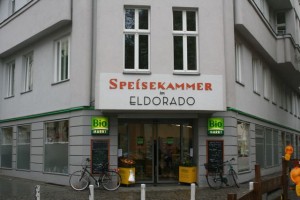
In 1996, a new venue at Motzstraße 20 opened under the name Eldorado Music Bar. It closed in around 2015.
